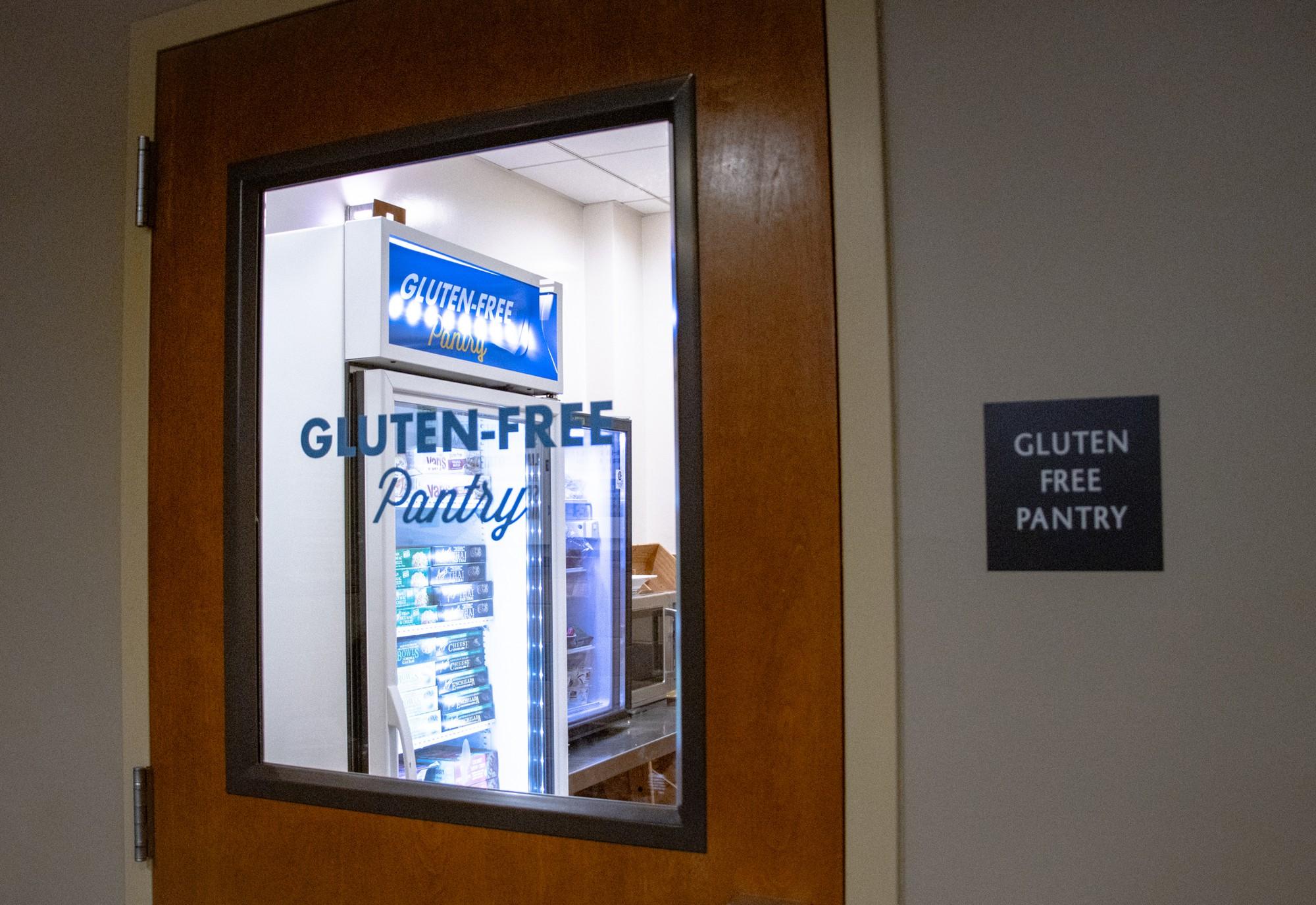The Bruin Gastronomer: Despite challenges of avoiding gluten, campus resources can keep students healthy
Pictured is the Gluten-Free Pantry. The Gluten-Free Pantry is one of the resources UCLA offers for Bruins who eat gluten-free. (Brianna Carlson/Daily Bruin)
By Kyla Ventura
July 25, 2024 8:32 p.m.
As the school ranked No. 1 for its dining halls by Niche for five consecutive years, UCLA students have a wide variety of inviting meal options to choose from.
For Bruins with dietary restrictions such as eating gluten-free, the nationally recognized dining halls offer both benefits and challenges.
While some avoid gluten due to personal preference or gluten-related allergies, many cannot consume gluten because of autoimmune diseases. Celiac disease is a gastrointestinal autoimmune disease in which an immune response is triggered when gluten enters the body, causing symptoms such as stomach pain, according to the Celiac Disease Foundation. The disease affects around one in 100 people globally, according to the foundation.
Nancee Jaffe, the lead dietitian for the Vatche and Tamar Manoukian Division of Digestive Diseases who has celiac herself, said celiac disease can cause intestinal damage, which prevents proper absorption of nutrients.
“When someone with celiac disease eats gluten, their body recognizes it as a problem,” Jaffe said. “It starts to send up warning signals, and those warning signals come and try and attack the gluten – but unfortunately ends up attacking the small bowel instead.”
The only form of treatment for celiac disease is to eat strictly gluten-free, according to UCLA Health.
Alumnus Nicole Felici, who cannot consume gluten because of an autoimmune disease, said gluten is in more foods than people imagine.
“A lot of the foods that you’ll find them (gluten) in are baked goods,” Felici said. “Then there are some sneaky ways that gluten does make it into the diet, because lots of people don’t know about (them).”
One way gluten can indirectly make itself into food is through cross-contact. Cross-contact, which occurs when gluten products are made or prepared in the same spaces as gluten-free products, can occur even with minimal contact.
“It’s a crumb, basically,” Jaffe said. “For instance, if someone is making themselves a peanut butter and jelly sandwich – … and they stuck the knife in the peanut butter, put it on their wheat-containing bread or their gluten-containing bread, and then put it back in the peanut butter jar – that jar has now been cross-contaminated.”
Given the challenging nature of eating gluten-free, Bruins who do not have regular access to a kitchen and rely on food from dining halls face additional constraints.
Carole Bartolotto, nutrition education coordinator for UCLA Housing and Dining, said in a written statement that UCLA provides various gluten-free options and has online menus that can be filtered by dietary preference. Despite efforts to train dining staff to avoid cross-contact of the top nine allergens, she added that students must remain cautious.
“We are not an allergen-free facility,” Bartolotto said. “I will tell the (gluten-free) students to avoid the section in the front right of Bruin Plate that has the breads and desserts and instead use the compote or peanut butter that is available in the Gluten-Free Pantry.”
The Gluten-Free Pantry offers a variety of frozen meals, snacks and condiments to students who provide medical documentation of gluten intolerance to the Center for Accessible Education. Opened in 2013, the Gluten-Free Pantry has one location in Bruin Plate and another in De Neve Residential Restaurant.
However, while students have access to dietary accommodations on campus, Felici said eating socially is often hard because of her limited options.
“I found that a lot of the community-based food and a lot of the things people bonded over as roommates and people living on the Hill were the foods that I didn’t really have access to,” Felici said.
She added that she often could not participate when her friends would socialize over late-night food options from The Study at Hedrick, as the options were limited to foods with gluten.
“Having a dietary restriction can be a very vulnerable thing,” Felici said. “Food is a way that we can communicate with people and share memories and embrace each other.”
Felici said while gluten-free students can’t participate in some social activities, she is still appreciative of the options that the school currently provides. She added that she would like to see nutritionally informative menus on campus and more awareness of gluten-free options.
Though there is room for improvement on campus, Jaffe added that students worried about eating gluten-free can make the most of their college experience by doing diligent research on what cautions to take and how to make use of existing opportunities, such as meeting with the dietitian at the Arthur Ashe Student Health and Wellness Center.
“I’m a huge fan of, ‘Do the work before you ever set foot on campus,’ because you want to enjoy your college experience,” Jaffe said. “You can start that work as soon as you know that you’ve been accepted to campus.”
